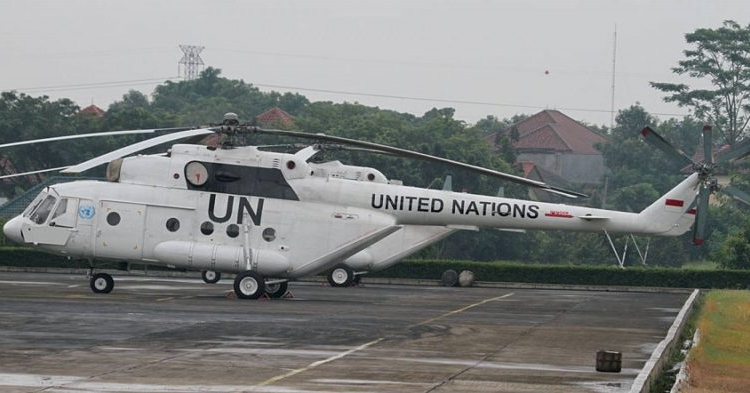Israeli-based Bird Aerosystems has received a contract from the United Nations to provide its airborne missile protection system (AMPS) to the Mi-17 helicopters operating in Africa.
According to official sources, BIRD’s field-proven Airborne Missile Protection System (AMPS) family of solutions provides complete protection against all known Surface to Air Missiles (SAM) including MANPADS, Laser Beam Rider threats and radar-guided missiles.
Bird Aerosystems AMPS-MV is designed to automatically detect, verify, and foil surface-to-air missile (SAM) attacks through the effective use of countermeasure decoys (flares and chaff) and by Directional Infrared Countermeasures (DIRCM) that jam the missile’s infrared seeker.


The AMPS-MV includes BIRD Aerosystems’ patented Missile Approach Confirmation Sensor (MACS), which provides confirmation of suspected incoming missile threats detected by the main electro-optical passive sensors, and eliminates false alarms. MACS ensures that only real missiles will be declared by the system and reacted upon, the company said.
Under the contract, Bird Aerosystems on 5 August said that its AMPS-MV solution, which includes the MACS sensor, would be installed on UN Mi-17s operating in dangerous and complicated areas in Africa. The UN is already using BIRD’s airborne missile protection system (AMPS), and this is a follow-on order that will allow the UN to install the systems on additional helicopters.
“The UN Air Operations teams are operating in the most dangerous areas and conflict zones in Africa, and therefore have to make sure that their helicopters are safe and protected against the constantly growing threat of MANPADS. As caring for its soldiers is a primary goal for the UN, we are honoured that once again, they choose to do so using BIRD’s AMPS-MV.”
Ronen Factor, Co-Chief Executive Officer and Founder at Bird Aerosystems:







